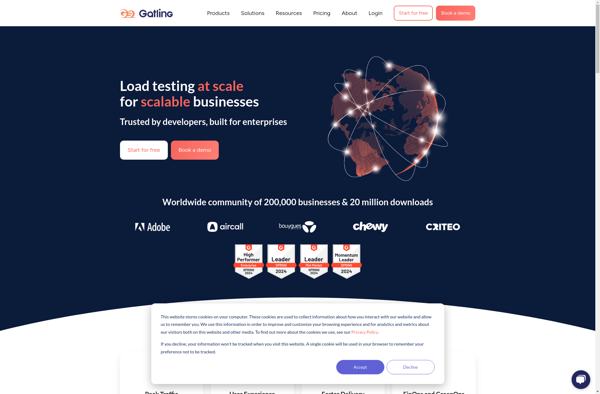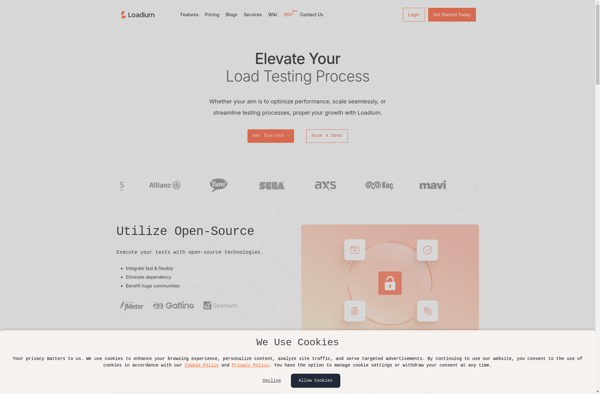Description: Gatling.io is an open-source load and performance testing framework based on Scala, Akka and Netty. It allows users to simulate load on a system and analyze overall performance under various user loads. Gatling is used for testing APIs, microservices and web applications.
Type: Open Source Test Automation Framework
Founded: 2011
Primary Use: Mobile app testing automation
Supported Platforms: iOS, Android, Windows
Description: Loadium is an open-source load and performance testing tool for web applications. It allows users to simulate large numbers of concurrent virtual users to test the load capacity and performance of web apps under normal and peak traffic conditions.
Type: Cloud-based Test Automation Platform
Founded: 2015
Primary Use: Web, mobile, and API testing
Supported Platforms: Web, iOS, Android, API

